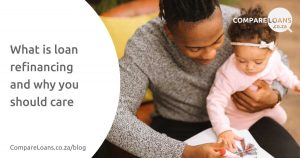Loan glossary: 50 finance terms & definitions everyone should know
Are you considering a personal loan or already have one? Knowing key finance terms and their definitions can help you feel confident during conversations with lenders and other financial partners. To make it easy, we’ve gathered fifty of the most common words used in the lending industry here in this helpful glossary. Read on to gain a better understanding of APRs, credit checks, refinancing options and more – all explained in simple terms!
Affordability assessment
A process lenders use to decide how much you can afford after you apply for a loan. They look at your income, current expenses, plus other factors.
Annual Percentage Rate (APR)
A percentage that represents the cost of borrowing per year. It is applied to the loan amount and includes the interest rate and all fees.
Asset
An item that has cash value such as your car, house, or even an engagement ring.
Bad credit
This happens when you get a low credit score after failing to pay back your loans in the past. That means lenders won’t trust you when you apply for future loans unless you apply for a bad credit personal loan.
Balloon payment
A lump sum of money you have to pay at the end of a loan term. Balloon payments are common in vehicle finance, and the amount required is much larger than that for monthly instalments.
Bankruptcy
A legal process that helps when you no longer have the ability to pay back your debt. If you’re declared bankrupt, you won’t be required to pay back some of or all the debt you have.
Blacklisted
Strictly speaking, blacklisting doesn’t exist. Most people use blacklisting to mean that you or someone has negative information on their credit report that can result in a lot of rejected applications. However, if you have poor credit, you might still be able to get a “loan for the blacklisted.”
Borrower
A person who borrows money and has to pay it back under a loan agreement or contract.
Cash flow
The movement of money received as income and how it is released through expenses.
Co-borrower
The second person named on a joint-application loan who shares the money with you and is also responsible for paying back the loan.
Co-signer
A person you add to your loan application who will be responsible for your loan payments if you fail to repay. A co-signer improves your chances of approval, especially if you’re applying for bad credit or average credit loan.
Credit bureau
If you’re South African, this is where you can get your one free credit report per year. Common credit bureaus are TransUnion, Experian, and Equifax.
Credit check
Also called a credit search. This is when a bank or lender uses the information in your credit report to decide whether to lend you money or not.
Credit history
Your past behaviour in relation to the loans or debts you have applied for and how you have paid back the received funds.
Credit report
A report with all the details about your credit history or financial history when it comes to borrowing.
Credit score
A three-digit number that typically ranges between 300 and 850 and which is calculated using your credit history. A high credit score helps you to qualify for a good credit loan or an excellent credit loan.
Creditworthiness
A measure of your ability to repay borrowed money.
Collateral
An asset used to guarantee a loan. For example, secured car loans use the car as security so that when you fail to repay the loan, the lender can legally claim the car.
Debit order
A way to pay back your loan or debts. You give the lender permission to deduct funds from your bank account automatically.
Debt consolidation
Using a personal loan or debt consolidation loan to pay off your other debts for reasons that include saving money on interest or better debt management.
Debt-to-income ratio
A percentage that measures your personal finances by dividing your monthly debt with your monthly income. The lower the ratio, the more you can afford new loans.
Debt review
A process where you meet with a debt counsellor who helps you with more affordable payment arrangements if you’re struggling to pay back your debt.
Default
Failure to repay your loan.
Deposit/Down payment
A lump sum of money you have to pay that partly covers the purchase price of an asset such as a car.
Eligibility
Your ability to meet the requirements that are listed when you apply for a loan.
Emergency fund
Money that you save so you have cash ready in an emergency. Here’s how you can set up an emergency fund.
Financing
Financing is when you get a loan or funds from a bank or financial institution to pay for your medical bills, wedding, home renovation, business.
Fixed interest rate
An interest rate that – when applied to your loan – remains the same until you finish paying your loan. Fixed-rate personal loans are not affected by the fluctuation in market rates.
Home equity
The cash value of your house that belongs to you. It’s the difference between the house’s market value and what you still owe. A home equity loan involves borrowing against your equity.
Interest rate
A percentage applied to a loan amount. It represents how much the lender is charging you for borrowing.
Lender’s risk
The chances of a borrower not repaying the loan or the interest on the loan.
Line of credit
An arrangement with a lender that allows you to borrow money any time up to a specific limit, for example as with credit cards. In an open line of credit or a revolving credit, you can keep borrowing once you pay it back.
Loan
Borrowed money that should be repaid with interest on top. Common types of loans include personal loans, short term loans and car loans.
Loan calculator
A tool that calculates the monthly repayments for your loan using your loan amount and loan term. There’s a personal loan calculator, vehicle finance calculator.
Loan fees and charges
Other costs of borrowing charged by the lender besides the interest rate. This might include an initiation fee, monthly service fees, and fees for early or late payments.
Loan term
The amount of time taken to finish paying back your loan, measured in months or years.
Loan amount
The amount of money borrowed from a credit provider or lender.
Lender
The bank, credit provider, or financial institution that provides you with a loan. Popular South African lenders include Nedbank, Absa, Direct Axis, Standard Bank, and African Bank.
Monthly repayment/Monthly payment/Monthly instalment
The amount you pay back every month after you take out a loan.
National Credit Act
The legislation that governs the credit industry and which appoints the National Credit Regulator (NCR) to oversee the prescribed regulations.
Outstanding debt
Money that you borrowed, such as a student loan or business loan and which you still haven’t paid back.
Overdraft
A line of credit that still allows you to withdraw a limited amount of money after your bank balance reaches zero.
Payday loan
A type of short term loan you have to pay back quickly, usually within 30 days or on your next payday. Payday loans are typically used for emergencies. You can borrow as little as R500 or as much as R1000 up to R8000.
Personal loan
Money borrowed from a lender and which you repay with interest added via monthly instalments. A personal loan has many purposes, including car repairs, school fees, dentist visits, cosmetic surgery, or going on holiday.
Principal amount
The amount you borrow from a lender and which you owe minus interest.
Refinancing
Replacing an old loan with a new loan that has more favourable and optimal terms.
Secured loan
A loan which requires an asset or collateral as a guarantee. That means the credit provider has a right to repossess the asset if the loan is not repaid. Common types include secured personal loans and secured car loans.
Unsecured loan
A loan that doesn’t require collateral, usually an unsecured personal loan or an unsecured car loan.
Variable interest rate
An interest rate that moves up and down depending on the market rate. Variable-rate personal loans, therefore, have a fluctuating interest rate.
Vehicle finance
A specialised loan you can use to buy different types of vehicles, for example, new or used cars, boats, jet skis, motorbikes, trucks, caravans, classic cars, or Uber cars.
Photo by Abby Chung from Pexels
Latest posts

Why was my loan application rejected?
23.08.2020

What is loan refinancing and why you should care
23.09.2020

What is financial responsibility and how to achieve it
24.11.2020
